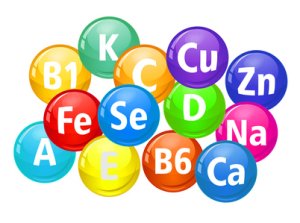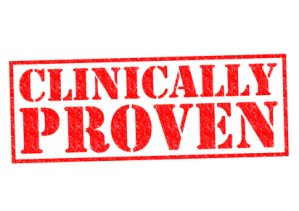Do you take supplements?
 Even if you eat a balanced diet, you can easily become deficient in one or several essential nutrients. If that is the case, it makes perfect sense to take a supplement. The problem is how to find out if your supplement has the right quality for the body to be able to absorb and utilize the nutrients. Continue reading and find out what you should pay careful attention to.
Even if you eat a balanced diet, you can easily become deficient in one or several essential nutrients. If that is the case, it makes perfect sense to take a supplement. The problem is how to find out if your supplement has the right quality for the body to be able to absorb and utilize the nutrients. Continue reading and find out what you should pay careful attention to.
Are vitamins and minerals essential?
Essential nutrients are vitamins and minerals, on which the body depends for normal functioning but is unable to synthesize. Most vitamins and minerals fit into this category. Since we humans are unable to make them ourselves, we need to get them from the diet or from supplements. For example, if you have lacked selenium for a long time, it may impair your immune function and slow down your metabolism. For men specifically, long-term selenium deficiency may increase their risk of prostate cancer. The only way to deal with the selenium deficiency is by increasing your selenium intake.
Are all supplements necessary?
No. Food supplements as a category includes vitamins, minerals, amino acids, and essential fatty acids, but it also includes other compounds such as plant extracts and herbs. The body can easily get along without herbal remedies and plant extracts, but it cannot do without the essential vitamins, minerals etc. For that reason, only nutritional supplements with nutrients are necessary and only if the diet falls short.
Can you overdose on food supplements?
Theoretically, anything can be ingested in amounts that are unhealthy or even potentially harmful. This goes for food supplements as well as for regular table salt and even water. If you follow the directions on a food supplement, however, you can consume the product every single day for as long as you wish, without being at risk.
Can vitamins be sold as drugs?
As a rule, vitamins and minerals are sold as supplements, provided their content of any nutrient does not exceed the amount you can obtain from your diet. If, however, the dosage is substantially higher than the levels, which the diet is able to provide, the products must be registered as drugs. From a safety point of view, this is an advantage for the consumer because drugs, contrary to supplements, need to be approved. What is more, drugs must contain a patient information leaflet with details about possible side effects and/or interactions with other drugs.
How do I know which product to buy?
It is always prudent to buy supplements from manufacturers/suppliers that you are familiar with and trust. Avoid buying supplements off the net from unknown suppliers. There are many documented examples of tainted products and fraudulent suppliers. This is possible because supplements are not subject to routine quality inspection and safety control, as it is the case with drugs. In fact, there are manufacturers who deliberately cheat with the quality of their products.
How do I know if a supplement is effective?
You cannot judge the effect of a supplement by its looks. There can be huge differences in bioavailability from one product to the other. Even in a situation where two different supplements contain the exact same raw material, improper handling of the raw material during the manufacturing process may result in poor bioavailability of the active ingredient(s) and reduced effect.
Should I look for scientific documentation?
 It is always a good idea to check if there is scientific documentation to support the absorption, safety, and effect of a supplement, but be careful. Many manufacturers deliberately refer to studies that have been conducted with other preparations, thereby making their own product look trustworthy.
It is always a good idea to check if there is scientific documentation to support the absorption, safety, and effect of a supplement, but be careful. Many manufacturers deliberately refer to studies that have been conducted with other preparations, thereby making their own product look trustworthy.
How do know if I can trust the documentation?
Fancy charts on glossy paper may look impressive and convincing, but they are no guarantee of a product’s safety or affect. If you want to be on safe ground, try Googling the manufacturer’s name together with the brand name. If there is any scientific documentation to back up the product, your search will lead you to it. Stick with companies that actively engage in scientific research with their own products, and who are willing and able to present the results of their science. There is plenty of hot air out there, and only very few companies are actually able to put their money where their mouth is.
Who issues approvals for supplements?
There is no authority that approves food supplements. It is the responsibility of the individual supplement manufacturer to make sure that his product complies with the law. The health authorities have specific rules that dictate which substances are allowed to use in supplements and in which quantities they are permitted. Other than that, there are no procedures for approval. Random spot checks are conducted from time to time, and there are cases where the health authorities identify tainted or adulterated supplements, but food supplements are not under scrutiny, as it is the case with medicine.
How do I avoid dangerous products?
For you as a consumer, the only way to trust the quality of a supplement is to buy preparations that come from a pharmaceutical manufacturer, who manufactures supplements in compliance with the exact same rules and regulations as those used for pharmaceutical drug manufacturing. This is a good guarantee that the products are safe and effective.
The “made in Denmark” example
Denmark has always been renowned for its quality. In fact, when a product carries the “made in Denmark” stamp, consumers feel that they can trust it. But there are pitfalls, and some manufacturers deliberately piggyback on the good reputation of Denmark’s name, for instance by selling a supplement where the tablets are manufactured in India but packed in Denmark. Technically and legally, the product is Danish, but the quality of what is inside remains unknown and cannot be accounted for. If you want a product that is exactly what it claims to be, you must ask the manufacturer to document the manufacturing process. Make a phone call or send an email asking for proof that the tablets or capsules have been produced and packed by the manufacturer, not by an unidentified subcontractor.
Can I trust foreign supplements?
Maybe, maybe not. When it comes to quality, some countries have a better reputation than others. Even in the United States, a nation that is normally associated with high-quality manufacturing, a 2014 investigation revealed that the contents of a large number of American supplements did not correspond with their labels. In some cases, the active ingredient had been replaced by potato flour or rice flour, and there are also cases of supplements that have been spiked with potentially harmful compounds







